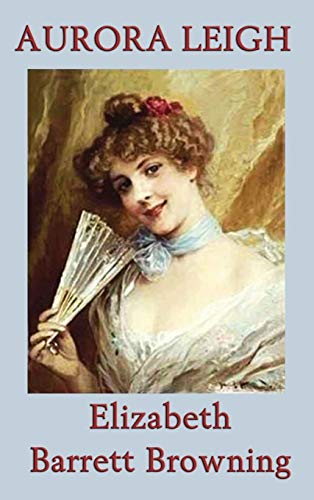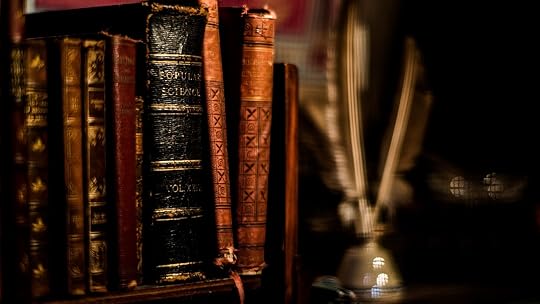What do you think?
Rate this book


304 pages, Hardcover
First published January 1, 1856



Ah, Aurora Leigh, how do I review thee?
Shall I recount the ways in which you made me cry,
the nights of frustration, the days of recluse,
since I had a dissertation to finish,
and you were just so damn unreadable?
4.9/5
I believe / In no one's honour which another keeps, / Nor man's nor woman's.It is rather pathetic, what is encouraged to soar and what is denied that extra gust of wind beneath its wings. More pathetic yet is when the status quo suckers bend over backwards to excuse the artificiality as if, pound for pound, the more neglected demographic did not meet the demands, layer by layer, pillar by pillar, defined by such vaunted categories as the epic poem. Aurora Leigh proved neither a five star nor a favorite, but bear in mind that I bought, mostly out of luck and partially out of desperation, an edition more contemporaneous with the author than myself, and so all the neat and mayhaps necessary aids to my understanding via the categorization of references and allusions were nowhere to be found. Thus, this is one of those works that goes down as needing a future revisit through the medium of a more modern edition, as while I caught what I could from such mainstream mentions of Shakespeares and burned houses, I want the full fleshed out form of something so old and yet so relevant to my self. Maybe then this will prove the five star or even favorite edition, but for now, I am satisfied with what I have gotten thus far.
Do we keep / Our love to pay our debts with?
What is done, is done, / And violence is now turned privilege, / As cream turns cheese, if buried long enough.Name me a Victorian male who delves into all the viciousness of class relations between women with all its associated breeding and selling of bodies, sets it all to walk in tandem with the woman as artist and the artist as artist, not unspoken male, and tops it off with glorious depictions of nature, morality, duty, and love of literature, the last both in terms of creation and indulgence. No, I do not suppose any of those would prove a worthy topic, unless there were porn of some sort in the vein of tragedy or disability or some boxed up automaton carved out by Pygmalion and wound up only after signing all their rights away under conventions of love or marriage. Other topics not worthy of mention here, I imagine: girlish childhoods hemmed in by xenophobia, womanly balances between financial independence and financial security, artistic concerns with constructing social systems versus grounding spiritual welfare, distinguishing between having made a mistake and having made the right mistake at the right time, solidarity out of the spirit of gender and the recognition of all the ills the world wills on the gender after rendering it said gender, etc, etc, etc. Perhaps one or more would claim the third or fourth, but they would have to mind the constant theme of girlish, womanly, female gender, female artistry, female, female, always female, never an onlooker, never an outsider (and when I mean outside, I mean of the cis variety. don't mistake my concerns for a bad faith reliance on inherently variable, biological matterns), never a thief, never a liar, never a fool.
Yet, behold, / Behold!—the world of books is still the world; / And worldlings in it are less merciful / And more puissant. For the wicked there / Are winged like angels. Every knife that strikes, / Is edged from elemental fire to assail / A spiritual life. The beautiful seems right / By force of beauty, and the feeble wrong / Because of weakness.
[W]e have all known / Good critics, who have stamped out poets' hopes; / Good statesmen, who pulled ruin on the state; / Good patriots, who, for a theory, risked a cause; / Good kings, who disembowelled for a tax; / Good popes, who brought all good to jeopardy; / Good Christians, who sate still in easy chairs, / And damned the general world for standing up.One of the most powerful countries in the world today has had at its helm for more than a year an incompetent in all things save for matters of sexual assault, so you cannot tell me all the other representatives of that incompetents gender do not have to work twice as hard to make up for their failure (exceptions may be made for race), as it would not be the first time such fallacious distribution of responsibility had been made, or the second, or the fourteen hundredth; all it would be, just maybe, is the first time for a certain demographic, and likely it would slough off as much as water sloughs off the back of a duck, for this demographic has been in power for five firm centuries, enough time to have twisted all the recorded history before into the foulest sort of mirror, where rape is love and slavery is hospitality and genocide is the birth of a nation, and the modern people suffer for it. To find such an epic poem/novel as this is merely half the work, for a woman may still be white and well enough and thus incapable of encompassing the other four-fifths of the world, but in terms of starting points, it is of a better quality than most of which is currently trumpeted in ivory towels as the only triumphs of their kind.
Men get opinions as boys learn to spell. / By reiteration chiefly[.]
I do distrust the poet who discerns / No character or glory in his times, / And trundles back his soul five hundred years, / Past moat and drawbridge, into a castle-court, / Oh, not to sing of lizards or of toads / Alive i' the ditch there?—'twere excusable; / But of some black chief, half knight, half sheep-lifter. / Some beauteous dame, half chattel and half queen, / As dead as must be, for the greater part, / The poems made on their chivalric bones, / And that's no wonder: death inherits death.